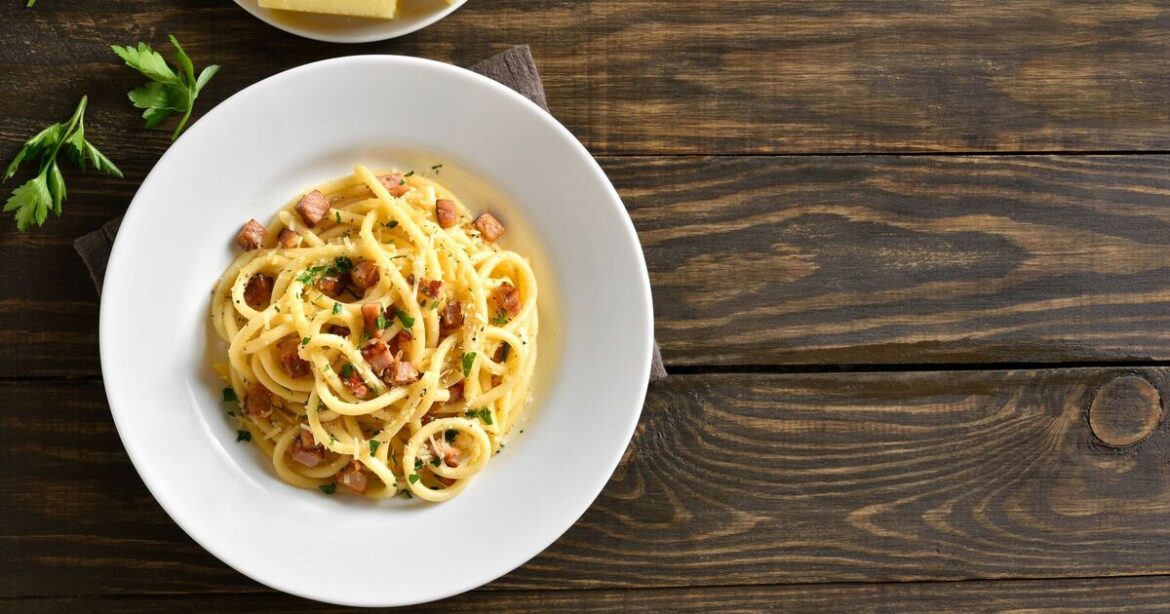An Italian cuisine specialist has pinpointed the cardinal sin many amateur chefs commit when whipping up a classic Italian carbonara, which can drastically alter both its authenticity and flavour. Orazio Salvini, founder of Real Italian Restaurants, has pointed out that numerous Brits are unknowingly sabotaging their culinary efforts through several avoidable errors.
Orazio laments the plight of Italian cooking in British homes, saying: “Italian cuisine suffers in British kitchens because of misconceptions passed down through generations. Adding cream to carbonara ranks as perhaps the biggest culinary crime against our traditional dishes.” The connoisseur of Italian fare elaborates on the faux pas: “Authentic carbonara relies solely on eggs and cheese for its creamy texture and to true Italian food lovers, adding cream is a mark of a poor cook.” Orazio emphasises the beauty of simplicity in Italian cooking, advocating for minimalism and quality: “Italian cuisine celebrates simplicity. With just a few high-quality ingredients handled correctly, you can create truly authentic dishes at home. Once you understand a few fundamental principles, creating authentic Italian food becomes much easier.”
However, the carbonara faux pas is widespread; a study carried out between November 16 and December 6 2021 on 1,030 Italians revealed that while people from Italy view cream in carbonara as a serious gastronomic offence, other nations deem it perfectly acceptable.
Research and data analytics company YouGov unveiled a list of 11 culinary sins that Italians believe are grave offences to their beloved cuisine, with the cardinal sin being the act of slathering ketchup on pasta, closely followed by the blunder of cooking pasta in cold water, and the contentious topping of pineapple on pizza.
The study calculated an ‘acceptability score’ for each culinary crime, where positive figures indicate a practice is more often seen as acceptable rather than not, and negative values suggest the opposite.
Orazio chimed in on the British blunders in Italian cooking highlighted by YouGov’s fresh findings, pinpointing a key error in pasta preparation. He advises: “Many British cooks add pasta to cold water and then bring it to a boil, but this ruins the texture completely. Always boil the water first, add salt only when boiling, then add your pasta.”
This particular pasta ‘crime’ ranks second on the list of sins committed against Italian food according to the survey, despite its prevalence in British kitchens.
Orazio also touched upon the issue of sauce overload in the UK. He notes, “British cooks often drown pasta in excessive sauce,” adding, “In Italy, pasta should be coated lightly, allowing you to taste both the pasta and the sauce together.”
Orazio’s fourth culinary faux pas involves the incorrect pairing of pasta shapes with sauces. “Spaghetti with bolognese sauce is one of the most common errors we see. The thin strands cannot hold the thick meat sauce properly. Tagliatelle works much better for bolognese, while spaghetti pairs perfectly with lighter sauces like oil and garlic or simple tomato.”
The fifth blunder pertains to pre-grated parmesan cheese. “Fresh Parmigiano-Reggiano has an incredible aroma and flavour that disappears in pre-packaged versions,” Orazio points out.
“Grating it fresh takes seconds but transforms your dish completely. Boil water before adding pasta, skip the cream in carbonara, match the right pasta shape with appropriate sauces, use less sauce overall, and always grate cheese fresh,” Orazio summarises.


Dining and Cooking